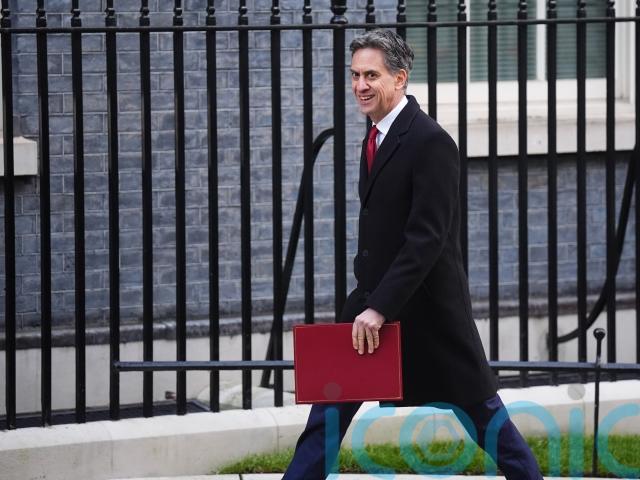
The UK Government will allow extraction of oil and gas near existing fields as it looks to expand North Sea production without issuing new licences.
Labour was adamant in the 2024 election campaign that new licences would not be issued for oil and gas extraction.
But warnings from the industry over the implications of fields like Rosebank and Jackdaw being rejected and the knowledge that fossil fuels will form part of the UK’s mix in the coming decades has led to the decision.
Following a months-long consultation, the Government announced the move as part of its North Sea Future Plan on Thursday, less than an hour after Chancellor Rachel Reeves rejected calls from Scotland’s north east to scrap the windfall tax on oil and gas giants.

The plan also officially closed the door to new exploration, which was greeted as a “major milestone” by environmental groups.
Under the scheme, new “transitional energy certificates” will be made available, which will allow producers to drill in areas “adjacent” to current fields, provided there is no exploration undertaken and the move would be required to ensure the existing field is viable.
The 127-page response to the consultation said: “To help ensure a managed, orderly and prosperous transition, we will introduce new ‘transitional energy certificates’.
“They will give the holder exclusivity over a specific area of the seabed.
“These areas of the seabed must be adjacent to an existing licensed block and will be managed on an ‘out of round’ basis by the North Sea Transition Authority.”
The areas must be “well understood”, the document said, with their size expected to be limited to the amount of known oil and gas in the field.
The Government also views this option as one which could be online faster than other fields, which would typically require years of exploration before production begins.
But campaigners have questioned how much oil and gas is currently in areas adjacent to the fields, with some estimates saying it could be enough to power the UK for just three weeks.
NSTA Chief Executive Stuart Payne has welcomed publication of the Department for Energy Security and Net Zero's response to the consultation on Building the North Sea’s Energy Future and the clarity and direction it provides. See the press release here: https://t.co/WYlYMF8ivk pic.twitter.com/BhMb41LDuh
— North Sea Transition Authority (@NSTAuthority) November 26, 2025
Along with the new licences, the Government will also establish the North Sea Jobs Service, a programme designed to help current oil and gas workers into jobs in other fields like defence, advanced manufacturing or renewables.
Speaking after the plan was announced, Energy Secretary Ed Miliband said: “The North Sea’s workers and communities have helped power our country and our world for decades. This is our plan to ensure they continue to do so for many decades to come.
“This is a world-leading plan with workers, unions, businesses, and communities at its heart, and implements in full the Government’s manifesto commitments. It is a plan which will ensure that the North Sea is an energy powerhouse throughout the 21st century.”
Mark Campanale, the founder of Carbon Tracker, said: “Today the UK Government confirmed a ban on new North Sea oil and gas licences – but kept the door open to tie-backs. That carve-out sounds significant but in practice, it’s not.
“NSTA and Rystad data shows that new oil and gas discoveries tied back to existing production sites that would require a new licence contain just 45 million barrels of oil equivalent.
“Even if every drop is developed, that’s less than three weeks of UK energy consumption.
“The UK’s marginal late-stage fossil projects are a distraction from the essential task of building a modern, resilient, low-carbon energy system. The British Government knows this.”
Greenpeace UK’s co-executive director Areeba Hamid said Britain had “made history” with the announcement of the end to new exploration.
“Closing the door to new exploration marks the beginning of the end of oil and gas in this country,” she added.
“By standing firm on its manifesto promise, the Government has shown genuine global climate leadership, making the UK the world’s largest economy to call time on new fossil fuel exploration. This is a major milestone.
“Oil and gas production has driven both the climate and energy price crises, leaving us all paying through the nose while fossil fuel giants have pocketed billions. But the winds are changing.
“The future of Britain’s energy is and needs to be clean, stable, home-grown renewables – not expensive, volatile, climate-wrecking fossil fuels.”
Tessa Khan, the executive director for campaign group Uplift, said: “This Government is right to end the fiction of endless drilling. The North Sea is an ageing basin, with most of the gas already burned, and new licensing will do nothing to stem the decline in jobs.
“Oil and gas firms have made billions in recent years but these profits have been handed to bosses and shareholders rather than reinvested to support UK workers.”
She went on to urge the Government to “be bold” and create a plan for workers.
Meanwhile, some experts claimed the change will do little for the industry while the windfall tax on producers remains in place.
David Whitehouse, chief executive of major trade body Offshore Energies UK, said: “The future of North Sea energy depends on investment, which won’t come without urgent reform of the windfall tax.
“If the levy stays in place beyond 2026, projects will stall and jobs will vanish, no matter what changes are made to licensing policy.
“Fixing this outdated tax is the key to unlocking billions in investment across the UK’s entire energy mix.”
Subscribe or register today to discover more from DonegalLive.ie
Buy the e-paper of the Donegal Democrat, Donegal People's Press, Donegal Post and Inish Times here for instant access to Donegal's premier news titles.
Keep up with the latest news from Donegal with our daily newsletter featuring the most important stories of the day delivered to your inbox every evening at 5pm.